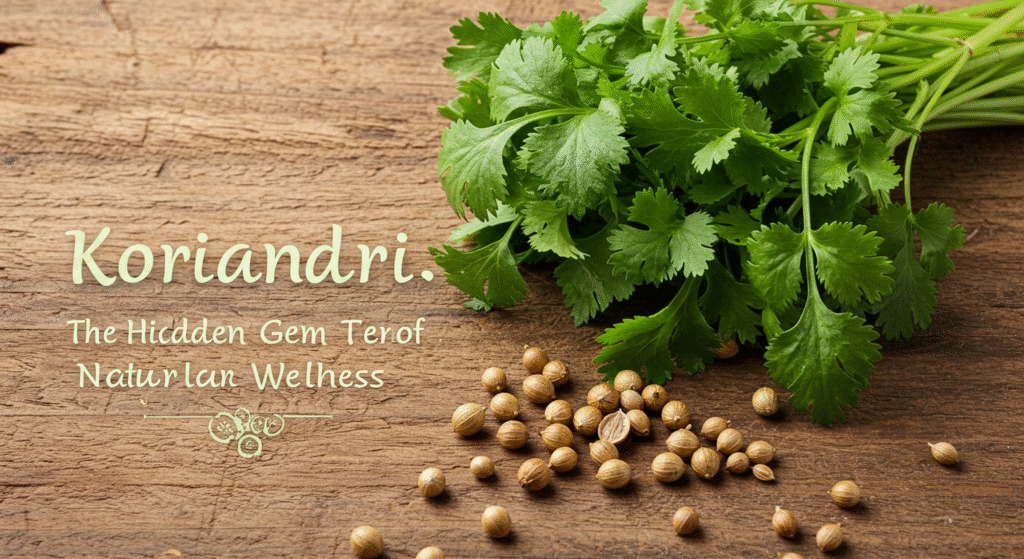Koriandri is a fascinating herb known for its distinctive aroma, culinary versatility, and rich health benefits. Often recognized as a traditional spice in many cultures, Koriandri has been valued for centuries for its ability to enhance dishes and support well-being. From kitchens to herbal medicine, it continues to play a vital role in natural living.
This article dives deep into what makes Koriandri so special — its origin, uses, nutritional value, and how it fits into modern wellness trends.
The Origin and History of Koriandri
The history of Koriandri dates back thousands of years. Believed to have originated in the Mediterranean and Middle Eastern regions, it was one of the earliest herbs cultivated by humans. Ancient civilizations such as the Egyptians, Greeks, and Romans used Korindri not only as a spice but also as a medicinal herb.
Over time, Koriandri spread across continents, finding its place in Asian, African, and European cuisines. Today, it is cherished globally for its multi-dimensional flavor — warm, citrusy, and slightly nutty — making it a staple in countless recipes.
Botanical Overview of Koriandri
Koriandri belongs to the Apiaceae family, the same botanical group as parsley and celery. The plant grows up to 50 cm tall and bears small white or pinkish flowers that later produce the aromatic seeds known as coriander or Koriadri. Both the leaves and seeds are edible, though they have distinct flavors — the leaves are fresh and citrusy, while the seeds are earthy and spicy.
| Plant Aspect | Details |
|---|---|
| Scientific Name | Coriandrum sativum |
| Common Name | Koriandri (Coriander) |
| Family | Apiaceae |
| Plant Type | Annual Herb |
| Native Region | Mediterranean and Middle East |
| Usable Parts | Leaves, Seeds, Roots |
Culinary Uses of Koriandri
One of the most notable features of Koriandri is its versatility in cooking. Every part of the plant — from its tender leaves to its flavorful seeds — can be used in various dishes.
Koriandri in Traditional Dishes
In Asian cuisines, Koriadri leaves are often used as a garnish or blended into sauces like chutneys and curries. In Middle Eastern and Mediterranean dishes, the seeds are toasted and ground into spice blends such as garam masala or dukkah.
The flavor profile of Koriadri enhances soups, stews, and marinades. It balances spicy and tangy dishes with a refreshing aroma, making it a favorite among chefs worldwide.
Modern Culinary Adaptations
In contemporary kitchens, Korindri has gained popularity in fusion recipes. From coriander-lime rice to herb-infused cocktails, chefs are experimenting with new ways to incorporate this ancient herb into modern cuisine.
| Cuisine Type | Common Koriandri Uses |
|---|---|
| Asian | Curries, Stir-fries, Sauces |
| Middle Eastern | Spice Blends, Roasted Dishes |
| Western | Soups, Salads, Marinades |
| Global Fusion | Smoothies, Desserts, Drinks |
Nutritional Value of Koriandri
Beyond its culinary charm, Korindri is loaded with essential nutrients. It’s rich in antioxidants, vitamins, and minerals that promote overall health.
| Nutrient | Approximate Amount (per 100g) | Health Benefit |
|---|---|---|
| Vitamin C | 27 mg | Boosts immune system |
| Vitamin K | 310 µg | Supports bone health |
| Potassium | 521 mg | Regulates blood pressure |
| Calcium | 67 mg | Strengthens bones and teeth |
| Fiber | 2.8 g | Aids digestion |
The combination of these nutrients makes Koriadri an excellent addition to a balanced diet.
Health Benefits of Koriandri
Digestive Health
Koriandri is known to stimulate appetite and support digestion. The essential oils in its seeds help reduce bloating, indigestion, and other gastrointestinal issues.
Anti-inflammatory Properties
Compounds found in Koriandri, such as linalool and cineole, possess strong anti-inflammatory effects. Regular consumption may help relieve symptoms of arthritis and joint pain.
Heart Health
Studies suggest that Korandri may aid in lowering cholesterol levels and managing blood pressure, thus supporting cardiovascular health.
Skin and Hair Benefits
Koriandri’s antimicrobial and detoxifying properties make it beneficial for skin health. Its antioxidants help combat acne, rashes, and premature aging. Additionally, Korandri-infused oils can promote healthy hair growth.
Koriandri in Herbal Medicine
Since ancient times, Koriandri has been used as a natural remedy in traditional medicine systems such as Ayurveda and Unani. It is believed to detoxify the body, calm the mind, and improve metabolic function.
In Ayurvedic practices, Koriadri tea is recommended for cooling the body and balancing digestion. Modern herbalists use it in essential oil form for relaxation and aromatherapy.
How to Use Koriandri Daily
There are several simple ways to include Koriandri in your everyday routine:
-
As a Spice: Add ground Koriadri seeds to soups, stews, or curries.
-
As a Fresh Herb: Sprinkle chopped Koriadri leaves over salads or grilled vegetables.
-
As a Tea: Boil crushed Koriandri seeds in water for a refreshing herbal drink.
-
As an Oil: Use Korindri essential oil for aromatherapy or topical treatments (diluted with carrier oil).
| Usage Form | Benefits | How to Use |
|---|---|---|
| Powder | Flavor + Digestion | Add 1 tsp to food |
| Leaves | Freshness + Detox | Garnish dishes |
| Oil | Relaxation + Skin care | Mix with base oil |
| Tea | Hydration + Calm | Brew daily |
Growing and Storing Koriandri
If you love gardening, growing Koriandri is both easy and rewarding. It thrives in well-drained soil and mild sunlight. The plant grows quickly, and you can harvest the leaves within a few weeks.
For storage, keep dried seeds in airtight containers away from heat and moisture. Fresh leaves can be refrigerated for up to a week or frozen for long-term use.
Cultural Significance of Koriandri
In many cultures, Korindri holds symbolic and ceremonial importance. In some traditions, it represents peace and protection. Its seeds have been used in rituals and even ancient perfumes due to their pleasant aroma.
Conclusion
Koriandri stands as a timeless herb that beautifully bridges the gap between culinary art and natural healing. Its versatility, rich aroma, and health-promoting qualities make it an essential ingredient for both traditional and modern lifestyles. Whether you use it to flavor your meals or support your wellness, Korianri remains a simple yet powerful reminder of nature’s enduring gifts.






